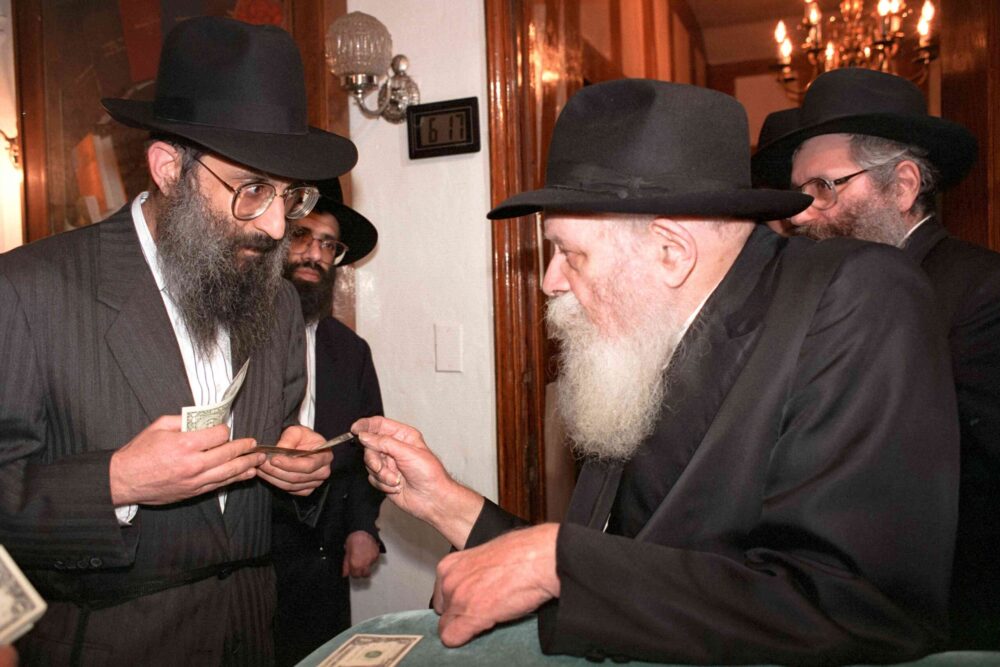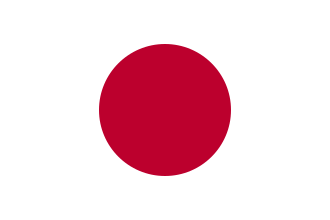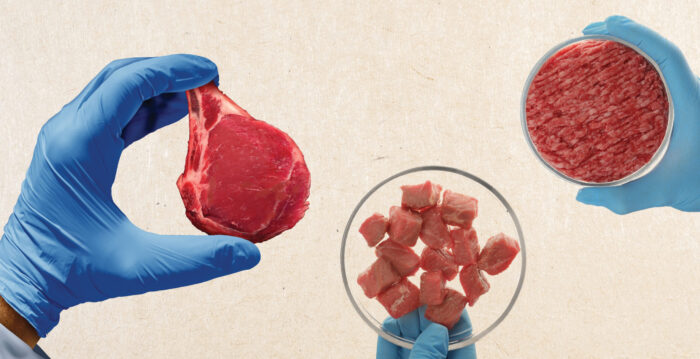
Photo © 2025 JEM, Halberstam, Chaim B #97534. All rights reserved.
Our story began in 1935, when kosher certification was limited, inconsistent, and often difficult to access. Ninety years later, the world and the food you eat looks very different. Today, kosher-certified products are more available and diverse than ever before, spanning every aisle of the supermarket and reaching almost every corner of the globe.
Your Cholov Yisroel yogurt was cultured using bacteria from Wisconsin. The spices in your kugel? Grown and processed in India. The chocolate in your cake started as beans in West Africa, passed through Europe, and
ended up in your kitchen. Your Yom Tov wine may have come from Israel, France, Australia, or South Africa. The sparkle in your lemonade was fermented in Italy, blended in Florida, and bottled in New Jersey. And this is just a sample. There are so many more products, processes, and places all connected by one quiet, encircled symbol: the OK symbol.
That symbol now appears on over half a million products made in close to one hundred countries. In fact, many products certified by other agencies likely contain at least one sub-ingredient certified by OK Kosher. A global effort to make kosher observance consistent, accessible, and— above all—trustworthy did not happen on its own.
A Chemist’s Vision: 1935
This story begins in 1935, when a young food chemist named Avraham Goldstein recognized that modern food processing had outpaced the ability of traditional rabbinic supervision. Ingredient panels were vague, and factory-made additives defied simple classification.
So, he founded Organized Kashrus Laboratories, introducing laboratory-based kosher certification. With test tubes and titration charts, he examined ingredients at the molecular level and published his findings in the Kosher
Food Guide. It was the first time families had both scientific and Halachic assurance that the foods they brought into their homes were truly kosher.
Supervision Takes Flight: 1965
By the 1960s, the world of food had changed again. The supply chain was now global: a single juice concentrate could combine fruit from South America, stabilizers from Europe, and preservatives from Asia.
Rabbi Berel (Bernard) Levy, a Lubavitcher chossid, talmid chochom and strategic thinker, got involved and assumed ownership. He understood what the moment demanded: supervision had to leave the lab and go directly
to the source.
OK Kosher was one of the first agencies to move beyond paper-based supervision and insist on on-site inspections. This included visits to production plants around the world at a time when few others did so. This proactive approach set a new global standard for kosher oversight. Rabbi Levy flew cargo flights to Malaysia, Singapore, Korea, China, and beyond—personally inspecting production lines, storage tanks, and raw materials. He did not rely on documents or second-hand assurances; if something was certified as kosher, he needed to see it for himself.
Under his leadership, regional hashgachos were unified under a single global OK symbol, and previously overlooked additives like MSG and ascorbic acid came under full kosher supervision. Thanks to Rabbi Berel Levy, other certifications also began making site visits instead of relying solely on statements or ingredient panels.
The Structure That Lasted: Rabbi Don Yoel Levy (1987–2020)
After Rabbi Berel’s passing in 1987, his son Rabbi Don Yoel Levy took the helm. Having already spent a decade at the OK, Rabbi Don Yoel brought deep Halachic knowledge, technical precision, and a visionary approach to
kashrus — a vision realized through the systems and protocols he developed to ensure compliance. These frameworks became the foundation of kosher supervision as we know it today.
He led OK Kosher into the digital age, building proprietary tracking systems, implementing tools to monitor product formulas, and creating structured documentation for every inspection. He also hired and trained
Rabbinic Coordinators in the office and mashgichim in the field, transforming the OK from a basement operation into a global headquarters in New York with affiliated offices and representatives worldwide.
He insisted that:
• Every visit by a mashgiach or Rabbinic Coordinator is documented in full.
• Every new facility undergoes firsthand review, with certification only granted after proper peer reviews.
• Every product bearing the OK symbol is produced in a facility personally visited and inspected by a qualified OK representative. OK verifies every production site ourselves.
• Rigorous systems ensure acceptance of certificates for ingredients used in OK-certified products—an article in itself.
His Halachic rulings were always guided by the Poskim he trusted; he leaned toward stringency when needed, never toward leniency for convenience.
From 2010 until his untimely passing in 2020, I had the zechus to work directly with Rabbi Don Yoel Levy. I witnessed how he built not just a system but a culture—one of trust, discipline, and unshakable yiras Shomayim. His expectations were high because they were always rooted in Torah and integrity.
Torah Before Anything
To those who worked closely with him, one thing stood out above all: His greatest passion was Torah.
Whether we were in New York on a regular day, at a steaming plant in China, or in a high-level meeting in Europe, the day began with learning. We had a daily Gemara shiur, no matter where the job took us.
Close to his untimely passing, we had planned to begin learning Yoreh Deah together—the section of Halachah that forms the foundation of kosher supervision. Unfortunately, that never came to be, but in his memory, we launched many initiatives in this realm.
Rabbi Don Yoel lived by this principle: “Kashrus begins in the Beis Midrash, and only then reaches the factory floor.”
That principle still guides everything we do.
Today: Led by a Vaad
After Rabbi Don Yoel’s passing, OK Kosher appointed an Executive Rabbinical Vaad—a senior group of rabbonim and Rabbinic Coordinators who had worked closely with him. This Vaad now oversees all certifications, approves new facilities, and maintains consistent Halachic standards across our worldwide offices. They have protected and built on the standards set by Rabbi Don Yoel Levy, ensuring we improve and learn from every experience.
Whether it’s our Brooklyn headquarters or our teams in Europe, Asia-Pacific, Latin America—or anywhere else, every report is reviewed, and every ingredient source is tracked with full documentation.
The Mission Remains The Same:
To go from good to great. A kashrus agency’s primary responsibility is to uphold Halacha and answer to Hashem—and in doing so, it must also carefully balance its obligations to the consumer, the certified company, and its own reputation. When these responsibilities seem to conflict, the agency must prioritize transparency, integrity, and public trust—never putting its own interests first. OK Kosher Certification emphasizes this hierarchy of values, striving for constant improvement and accountability in our kashrus standards.
Fifty Years of Mivtza Kashrus
Celebrating a Shared Mission: 90 Years of OK Kosher and 50 Years of the Rebbe’s Call
This year marks a double milestone: the 90th anniversary of OK Kosher and fifty years since the Lubavitcher Rebbe—Rabbi Menachem M. Schneerson זי”ע —called for a new mitzvah campaign: encouraging Jewish people to kosher their kitchens and commit to eating kosher food. The Rebbe quoted the teaching in Tanya that a person is affected by the food he or she eats, on both physical and spiritual levels. The Rebbe went on to explain that consuming non-kosher food can cloud the natural purity and innocence that a person is born with, allowing a person to potentially adopt views that are in opposition to Torah.
This effort became known as Mivtza Kashrus—a campaign that emphasized kosher observance as a core commitment of Jewish life.
When Rabbi Don Yoel Levy was a young man, he was deeply immersed in kollel in Eretz Yisroel, fully dedicated to Torah learning. At the time, his father, Rabbi Berel Levy, was leading the rapidly growing operations of OK Kosher and felt the need for help. Unsure if it was appropriate to involve his son, Rabbi Berel turned to the Lubavitcher Rebbe for guidance: Should his son leave kollel in Eretz Yisroel to assist him in the growing responsibilities of kosher certification at OK Kosher?
The Rebbe responded with a powerful question: “Why take him away from his studies?”
Time passed, and the demands of OK Kosher only increased. Rabbi Berel once again asked the Rebbe— this time whether he should bring in a partner to help. The Rebbe’s answer was clear and direct: “Bring in your son.”
This was a turning point. The Rebbe was no longer just permitting it—he was entrusting Rabbi Don Yoel with a mission.
Still, Rabbi Don Yoel longed to serve as a formal shaliach of the Rebbe. In a personal yechidus, he expressed this desire. The Rebbe’s response reframed everything: “Promoting kosher is also spreading Yiddishkeit.”
With those words, the Rebbe elevated the work of kosher certification. It wasn’t merely technical oversight—it was shlichus. A way to bring Yiddishkeit into homes, factories, and lives across the world. The Rebbe specifically instructed: “Go into the world of kosher and make repairs.”
This wasn’t just a job, it was a calling. A mission to strengthen kashrus, raise standards, and repair what needed fixing in the world of kosher observance.
For Rabbi Don Yoel Levy, kosher certification was never a career—it was Avodas HaKodesh. Guided by the Rebbe’s words, he approached every aspect of his work with a deep sense of responsibility, knowing that every decision carried spiritual weight. And that sense of purpose was contagious—we who worked with him felt it, lived it, and strive to emulate it every day.
So, it is only fitting that this year—90 years since OK Kosher’s founding and 50 years since the launch of Mivtza Kashrus—we recognize how intertwined those milestones truly are.
Kashrus shapes Jewish homes, strengthens Jewish families, and safeguards Jewish values. We are honored to support and further this initiative—in so many ways, in so many places. And we remain committed to the Rebbe’s vision: that kosher is not just a label—it’s a lifeline.
What’s Next?
We’re already building the future. Soon, consumers will be able to trace product information in real time, and kosher education will be more accessible than ever. But no matter what changes AI or new technology may introduce, some things will never change:
• There will always be a mashgiach on-site.
• There will always be a Halachic review.
Learn More, Stay Connected
We encourage every kosher consumer to deepen their observance:
• Learn the Halachos. Excellent programs are available for both men and women.
• Review regularly. Just as doctors attend continuing education to maintain their licenses, semicha is only the beginning, upholding high standards requires regular refreshers.
• Appreciate the people behind the labels. Every trusted hechsher stands on the shoulders of dedicated mashgichim and rabbinic leadership.
To support that growth, OK Kosher recently launched Kosher Connect — a monthly digital resource featuring:
• Timely Halachic insights
• Real-time tolaim updates
• Consumer hotline Q&A
• Alerts on new kosher products
Subscribe today by emailing [email protected].
Because when you understand what’s behind the label, your food doesn’t just stay kosher, it becomes part of your avodah. At OK Kosher we’re always moving forward, one product at a time, one inspection at a time, working to make the world a better, more kosher place.


 EN
EN  ZH
ZH  KR
KR  BR
BR  ES
ES  IN
IN  IL
IL  JP
JP 


